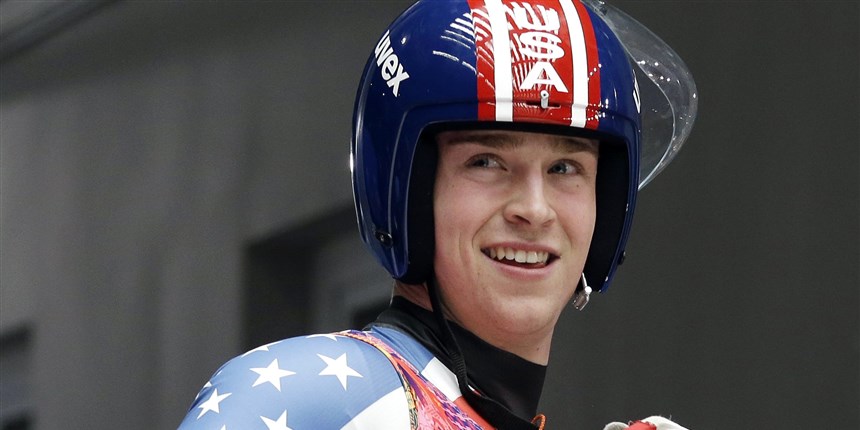
There’s not always green in Olympic gold.
While Lindsey Vonn has an endorsement portfolio befitting one of the world’s most recognizable athletes, and Shaun White once flew to New Zealand because he was craving a particular sandwich, the economic realities are far different for most of the U.S. athletes competing at the Pyeongchang Olympics.
They’re never going to get rich off their sport. It might, in some cases, even cost them. The biathletes, the curlers, the ski jumpers, the lugers and the Nordic combined athletes — they scrape by with help from their families and federations, juggle training with part-time jobs.
And for what? Aside from 16 days every four years, they train and compete in relative anonymity and financial obscurity.
“It’s all what you value,” ski jumper Will Rhoads said Thursday. “A lot of my friends might be graduating college right now and they’re going to go to a great job immediately. And I’m at the Olympics. It just depends what you really want to do, and what you find exciting and worth doing.”
Worth. It’s an interesting concept and one that, frankly, too often misses the point. There are more ways to measure success than financial wealth, but those are often overlooked.
At 22, most of the kids luger Tucker West grew up with are just starting to explore the world. He has a master’s level education in it. There are few corners of Europe he hasn’t visited, and if you need a recommendation for schnitzel in Austria, he knows just the place.
“We travel on Sunday or Monday and we don’t slide until Tuesday or Wednesday,” he said. “So we’ll usually have a day or two off where we can go explore or hang out.
“This is life experience,” West added. “We do luge because we love to do luge, but it offers so much more opportunities in life to go explore the world. To go hang out with friends while doing it.”
But the bills do have to be paid somehow. There’s equipment to buy, training to pay for, hotels to book.
Athletes from other countries often are subsidized by their government, but that’s not the case for the Americans. The U.S. Olympic Committee, which helps fund athletes through their sport federations, is a non-profit that receives no government money.
“It is an interesting topic,” said luger Chris Mazdzer, who said athletes often compare how and where they get their funding. “Do we do really well with our resources? I think the private sector does a fantastic job providing money to the Olympic movement, and I’m so grateful for that.
“Should the government also kick in? I think there could be a conflict of interest there,” he said. “But I think it should be discussed, how they could help out.”
That isn’t likely to happen anytime soon, however, so athletes make do however they can.
Some event organizers will help pick up the costs, but it varies. There’s often prize money, but that varies, too.
“I feel like I will break even every year if we have a successful year,” said John Shuster, skip of the U.S. curling team. “If we have not a successful year, it probably ends up costing me a bunch of money.”
Many athletes work jobs in the offseason — like professional NFL and Major League Baseball players did once upon a time. Rhoads and some other ski jumpers work for a property management company, painting, trimming trees, whatever needs to be done.
Dick’s Sporting Goods employs Olympians or Olympic hopefuls through its Contenders program, allowing them to train while working for the company.
“I’m an associate in the team sports department,” Shuster said. “I give them my schedule of where I’m going to be playing and when I’m going to be training and say, `I can work these particular days.’ ”
It won’t make him wealthy, but that’s not the point. Anyone can make money. Not everyone — almost no one, in fact — can be an Olympic athlete.
“Even though the sport doesn’t pay a whole lot, I have more life experiences than most people I know,” Mazdzer said.
And that is priceless.
By Nancy Armour
This article was republished with permission from the original author and 2015 Ronald Reagan Media Award recipient, Nancy Armour, and the original publisher, USA Today. Follow columnist Nancy Armour on Twitter @nrarmour.